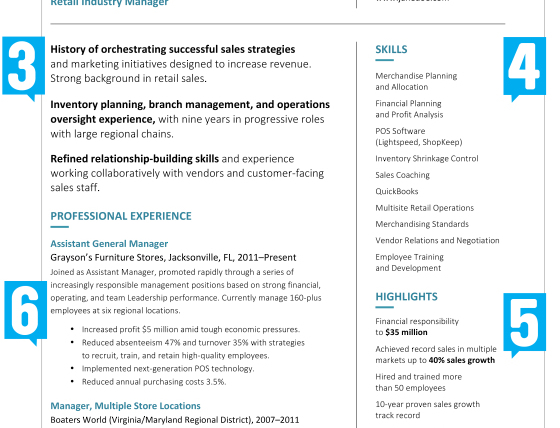
College is a time to meet new people, and many of the friends you make will stay with you long after graduation. But when you’re meeting person after person all over campus, it can be hard to tell when someone is a genuine friend.
They may seem nice, and you may be able to talk about anything, but will they be the kind of friend to stick with you through the good times and bad? Here is a run-down of the types of friends you will meet in college, and the key to knowing if they’re genuine!
1. The roommate
Roommates are often hit or miss. Sometimes you become best friends, other times you’re simply cohabitating until the school year is over. When things go well, it’s great! Netflix marathons, sharing clothes and swapping advice—it’s almost as if you have a sister. But underneath all of the fun, how do you know if this friendship is for real?
They’re genuine if…they treat you with respect at all times.
Allie Bausinger, a sophomore at Penn State University, had an up-and-down relationship with her roommate that didn’t end on the most positive note. “She made me believe all of first semester that she was my friend and that she cared about me,” Allie says. “Then second semester, everything turned around and I saw her true colors. Roommates are not always genuine, they’re trying to make the best out of what they might perceive as a bad living situation.”
It’s nice when your roommate comes to you for advice or invites you to awesome parties every weekend, but if they take your things without asking or involve you in conflicts with other people, these could be signs that your friendship isn’t genuine. True friends will respect you in all areas of life.
2. The hallmate
Even if you aren’t besties with your roommate, chances are you’ll become close with at least one of your hallmates. Hallmates are wonderful because you can bond over the shared experience of living in the dorms, but are able to have some time away from each other since you’re not roommates! But how can you tell if this friendship is based in more than proximity?
They’re genuine if…you keep in touch after you’re done living together.
If the only thing you have in common is living in the same dorm, you probably won’t have much to talk about after you move out. But if you keep in touch and have meaningful conversations even when you’re not next door to each other or meet for lunch at your favorite dining hall three times a week, you’ve found a genuine friend.
3. The class companion
A classic piece of college advice is to find a study buddy in each of your classes. And while this advice is meant to help your grades, it can also help your social life! When you combine hours of studying together with the shared commiseration midterm week, you have the recipe for friendship. While you might take time to grab coffee and talk about things unrelated to class, it’s not always clear if this relationship will last after you ace that final.
They’re genuine if…you continue to work together, in and out of the classroom.
Heather Baldock, a graduate of the University of Oregon, met one of her best friends, Chloe, in their Intro to Design class. After the class was over, they continued to team up for projects as they both pursued degrees in advertising. While sharing professional and academic experiences was a plus, Heather and Chloe’s friendship reached far beyond the classroom.
“It helps to have a close friend following the same career path as you who can both empower and critique you,” Heather says. “And, I could tell she was genuine from the start because of her incredible empathy. Whether I was struggling with something in my personal or school life, I could always count on her to listen and give ample support. We spent so many nights working together well past midnight that I probably spent more time with her my senior year than with my own boyfriend at the time (oops).”
This kind of friendship with your study buddy starts by building a foundation of trust and honest connection. And you can make the first move by finding time to connect over things that aren’t school. When you take a study break, start chatting about your weekend plans or your favorite movies—you’ll be friends in no time!
4. The one who’s involved in EVERYTHING
We all know this person: They’re taking 18 credits, but still have time to run three clubs, volunteer, work a part-time job and still dress to the nines with a perfect mani (we’re still trying to discover the secret to their success). They may seem super nice but it can be hard to tell if they have enough time to devote to a meaningful friendship.
They’re genuine if…they make time to support you.
Madeline McInnis, a fourth year at Wilfrid Laurier University know that quality is more important than quantity when it comes to these friends. “They may not have time to hang out or go to the bars, but you know they’re a true friend when they show up to the events you run as well as their own,” Madeline says. “They know the importance of friends supporting friends, and that’s how they’ll show it.”
Even if you don’t see them every day, this friend will be there when it counts.
5. The sorority sister
Sororities seem like a guaranteed way to make friends. A bunch of like-minded people coming together for social events? Sounds great! However, the rules and regulations put in place to ensure that the organization is run smoothly can make it difficult to form organic, true friendships.
They’re genuine if…your sorority sisters get excited about seeing you outside of chapter activities.
Abby Russo, a graduate of The College of William and Mary, experienced this first hand. “Although our friendships started forming during chapter organized events, my relationships with other sisters got stronger when we took interest in each other’s lives outside the chapter as well,” Abby says. “I could tell I was forming genuine friendships when I was excited to see sisters outside of sorority events and they were just as excited to see me!”
So, when you see your new sorority sister excitedly waving across the quad at you, showing up at your play or going with you to grab lunch, you know you’ve made a real friend.
6. The upperclassman
Older friends are fantastic. They’ve already experienced most of the things you’re going through and can be great sources of support when you hit roadblocks like a bad grade or a devastating break-up. But eventually they’ll have to leave campus and enter the real world before you – this is where things can get tricky.
They’re genuine if…they treat you like an equal.
Sometimes an age difference can create a weird power dynamic between two people. Your older friend may feel like because they’re older they can tell you what to do. Or they may talk down to you, chastising you for not understanding the struggles of #adulting while you’re still on campus. If your upperclassman friend does any of these things, it could be an indicator that they’re not a true friend.
However, if they listen to you and try to understand you, even when you’re in different chapters of life, they’re definitely as genuine as they come.
7. The mentor
You may only consider your boss or internship coordinator to be mentors, but your friends can be mentors too. Whether they have the job search figured out, have mastered the art of self-care or know how to perfect winged liner, this is the friend that you look to when you need guidance on anything.
They’re genuine if…they are willing to learn from you too.
Friendship is a two-way street—you give, and you take. You should share your skills with your friend, whether you can help her ace her calculus final, give her a killer pick-up line or teach her how to paddleboard. But if they’re reluctant to learn from you, or even just hang out when no guidance is needed, they might not be ready for a serious friendship.
8. The mom friend
Every squad has the “mom friend”—the pal who is constantly checking to make sure you’re safe, eating your vegetables and hitting the gym (when you have time, of course). You love her, but how can you tell if this person is actually a friend, and not your second mother.
They’re genuine if…they don’t try to control your life.
Some people are simply wired to take an invested interest in their loved ones’ lives. But when it gets to the point that they’re checking in on everything you do it can get uncomfortable. The most responsible and caring of friends should let you make your own decisions (even if you will regret them later). If you don’t feel like you have the room to choose for yourself, that’s a big warning sign that you aren’t with a genuine friend.
In the end, it’s important to have a variety of friends who are always there to love and support you. And remember, the friends you make in college can certainly be forever friends.







